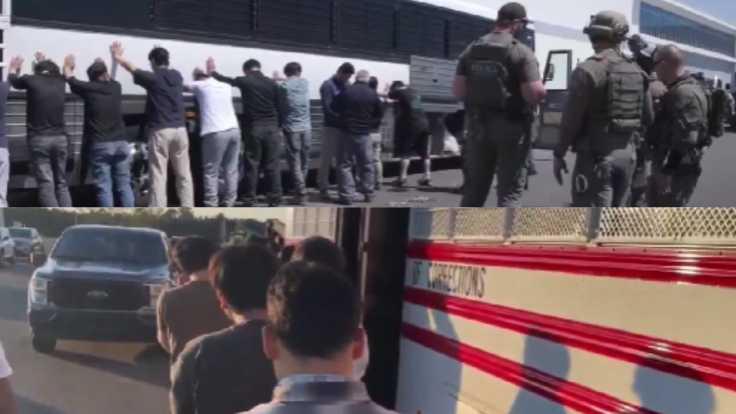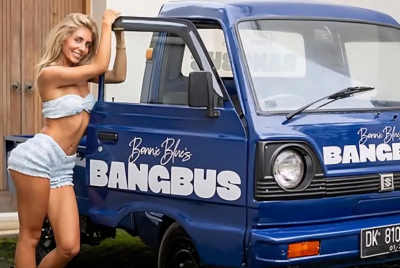Will Hyundai Raid Spark a Diplomatic Rift Between US and South Korea?
Seoul demands release of 300 nationals after ICE raid at Hyundai plant

Will Hyundai Motor Company face direct reprimands following the arrest of hundreds of undocumented workers at its Georgia battery plant? For now, the answer appears to be no.
On Thursday, 4 September 2025, federal agents staged a massive Immigration and Customs Enforcement (ICE) raid at the Hyundai–LG Energy Solution battery plant under construction in Ellabell, Georgia.
Nearly 500 people were detained, including more than 300 South Korean nationals. ICE described the operation as the largest single-site enforcement action in Department of Homeland Security (DHS) history.
Diplomatic Fallout
The unusually high number of South Koreans arrested drew a swift and strong response from Seoul. South Korean Foreign Minister Cho Hyun confirmed that more than 300 nationals were among those detained.
LG Energy Solution reported that 47 of its staff were arrested, including 46 South Koreans and one Indonesian.
Lee Jaewoong, a spokesperson for South Korea's Foreign Ministry, urged U.S. authorities to ensure the rights of South Korean nationals and to avoid unfair disruption of business activities. Seoul also issued a statement of 'concern and regret' and dispatched diplomats to Georgia to provide support.
Negotiations between Seoul and Washington have since secured an agreement to release and repatriate the South Korean workers.
Kang Hoon-sik, Chief of Staff to President Lee Jae Myung, said a charter flight will return them once final administrative steps are completed.
Cho Hyun is expected to travel to Washington in the coming days to oversee the process.
The raid comes at a sensitive moment in US–South Korea relations. Just weeks earlier, Seoul had pledged to purchase $100 billion (£74 billion) in U.S. energy and invest $350 billion (£259 billion) in American projects as part of trade discussions.
Hyundai's EV expansion, including the Georgia plant, was highlighted as a key pillar of that cooperation.
South Korean media have portrayed the detentions as humiliating, given the country's status as a close U.S. ally.
Investigation Focused on Subcontractors
According to AP News, Reuters and the Financial Times, the detentions stemmed from a months-long criminal investigation into alleged unlawful employment practices by Hyundai and LG subcontractors — not direct hires of Hyundai itself.
Hyundai has emphasised that none of the arrested individuals were company employees. The automaker said it is fully cooperating with authorities and has temporarily paused construction to review compliance across its supply chain, according to WTOC and the Financial Times.
The plant, one of Georgia's largest development projects, is considered critical to Hyundai's US electric vehicle ambitions.
The $7.6 billion (£5.6 billion) facility, jointly operated with LG Energy Solution, is intended to produce batteries for Hyundai's growing EV lineup.
The raid has now placed that high-profile project under scrutiny, though there are no signs that production timelines will be affected.
ICE Operation Described as 'War Zone'
Homeland Security Investigations special agent Steven Schrank confirmed that 475 people had been taken into custody. He said some had entered the United States unlawfully, others overstayed visas, and some were barred from working under visa waiver rules.
Workers described the raid as overwhelming. One Hyundai worker told CNN agents arrived 'like it was a war zone,' ordering staff against walls before moving them in groups for processing.
Others reported fleeing or hiding in air ducts, while several were pulled from a sewage pond after trying to escape.
Footage released by ICE showed convoys of federal vehicles rolling into the site, with detainees lined up outside the construction zone.
Some workers were shackled at the wrists and ankles before being loaded onto buses for transfer to federal detention facilities.
Focus Shifts to Workers' Return, Not Hyundai
While the raid has strained ties, there is no indication of penalties or direct legal action against Hyundai itself. The focus remains on the detained workers and their repatriation, rather than sanctioning the automaker.
Seoul has pressed the U.S. Embassy in South Korea for assurances and will continue monitoring the case closely.
Meanwhile, Hyundai has pledged to review its subcontracting processes to prevent similar incidents.
For now, the spotlight remains on the workers' return home — and on how both governments will manage the fallout from what has already been described as the most significant immigration enforcement operation in decades.
© Copyright IBTimes 2025. All rights reserved.




















